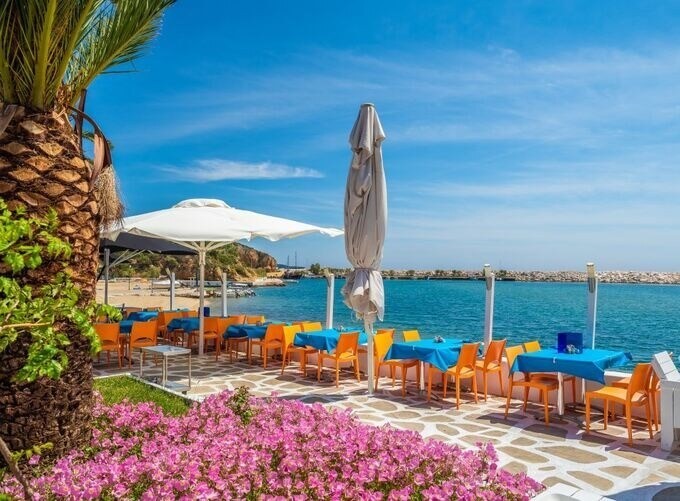
How Expensive Is It to Visit Greece?
Greece, with its rich history, stunning landscapes, and vibrant culture, is a dream destination for many travelers. However, the question of cost is a significant consideration for anyone planning a trip. This comprehensive guide explores various aspects of travel expenses in Greece, providing insights into costs related to flights, accommodation, dining, transportation, activities, and more. By the end of this guide, you'll have a clear understanding of what to expect and how to budget for your Greek adventure.
Overview of Costs in Greece
1.1. General Cost Trends
- Currency: Greece uses the Euro (€), which can influence how expensive the trip feels depending on your home currency's exchange rate.
- Cost of Living: Greece’s cost of living is generally lower than in Western Europe but higher than in some Eastern European countries. Major cities and popular tourist destinations are usually more expensive than rural areas.
1.2. Factors Affecting Costs
- Travel Season: Peak tourist seasons (summer) typically result in higher costs for flights, accommodation, and activities.
- Location: Costs vary significantly between popular destinations like Athens, Santorini, and Mykonos versus less-visited areas.
- Type of Traveler: Budget, mid-range, and Greece luxury travel will experience different costs based on their preferences and choices.
Flights to Greece
2.1. Flight Costs
- Peak Season: During the summer months (June to August), flight prices to Greece can be quite high due to increased demand.
- Shoulder Season: Prices are more moderate during the shoulder months (April to May and September to October).
- Off-Season: Winter months (November to March) typically offer the lowest flight prices.
2.2. Booking Tips
- Advance Booking: Book flights well in advance to secure the best rates.
- Flexible Dates: Use flight comparison tools and be flexible with your travel dates to find the lowest fares.
- Budget Airlines: Consider flying with budget airlines or booking connecting flights to save money.
Accommodation Costs
3.1. Types of Accommodation
- Hotels: Ranges from budget hostels to luxury five-star hotels. Prices vary significantly based on location, season, and amenities.
- Vacation Rentals: Platforms like Airbnb offer a wide range of options from affordable apartments to luxury villas.
- Hostels: Ideal for budget travelers, hostels provide affordable accommodation with basic amenities.
- Guesthouses and B&Bs: Often more personal and can be less expensive than hotels.
3.2. Booking Tips
- Off-Peak Travel: Traveling during the off-season can result in significant savings on accommodation.
- Compare Rates: Use comparison websites to find the best deals and read reviews to ensure quality.

Dining and Food Costs
4.1. Eating Out
- Street Food: Greek street food, such as gyros and souvlaki, is affordable, typically costing between €10 to €15 per serving.
- Casual Dining: Tavernas and casual restaurants offer meals ranging from €40 to €80 per person.
- Mid-Range Restaurants: Expect to pay €80 to €140 per person for a meal at a mid-range restaurant.
- Fine Dining: High-end restaurants can cost €150 to €250 or more per person.
4.3. Dining Tips
- Local Taverns: Enjoy authentic and affordable meals at local taverns away from tourist areas.
- Lunch Deals: Many restaurants offer lunch specials or set menus at lower prices compared to dinner.
Budgeting for a Trip to Greece
5.1. Daily Budget Estimates
- Budget Travelers: Expect to spend around €150 to €250 per day, including accommodation, meals, and basic transportation.
- Mid-Range Travelers: A budget of €250 to €350 per day will cover comfortable accommodation, dining at mid-range restaurants, and some activities.
Money-Saving Tips
6.1. Off-Peak Travel
- Travel During Shoulder or Off-Season: Avoid peak tourist seasons to save on flights and accommodation.
6.2. Local Experiences
- Eat Where Locals Eat: Enjoy authentic Greek cuisine at local eateries and avoid tourist traps.
6.3. Use Public Transportation
- Travel Like a Local: Utilize public transportation to save on travel costs within cities.
6.4. Take Advantage of Discounts
- Look for Deals: Use discount cards, city passes, and online deals to reduce costs on attractions and activities.
6.5. Book in Advance
- Early Reservations: Secure better rates on flights, accommodation, and tours by booking in advance.
Embrace Greek charm on your holidays.
Greece offers a wide range of experiences to suit different budgets. While costs can vary significantly depending on the time of year, location, and type of travel, there are plenty of ways to enjoy Greece without overspending. By understanding the cost factors, planning strategically, and making informed choices, you can have a memorable and affordable Greek adventure packages. Whether you’re a budget traveler or seeking a luxurious escape, Greece has something to offer every type of traveler. Enjoy your trip and embrace the beauty and culture of this incredible destination!



